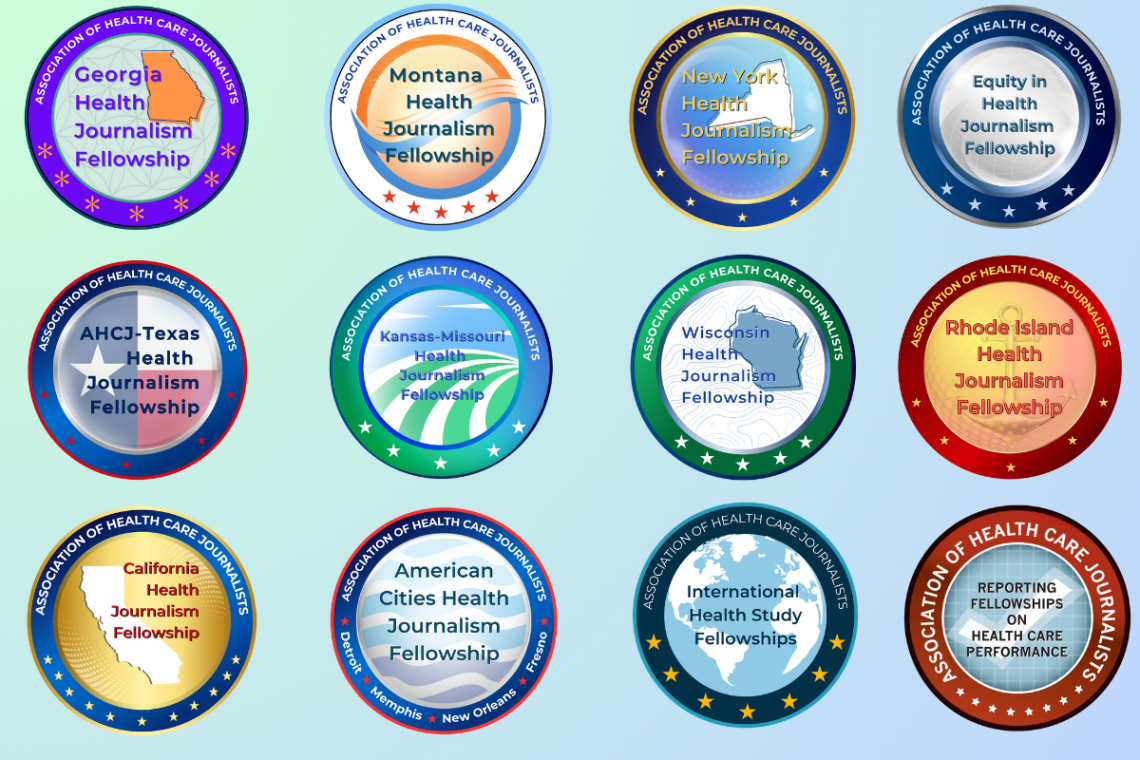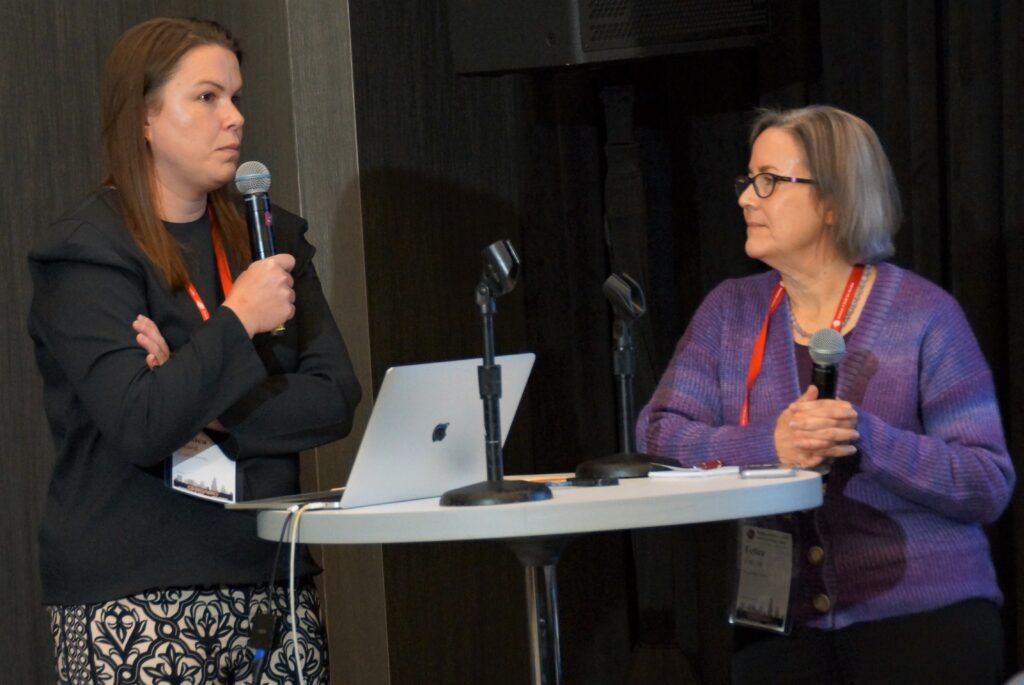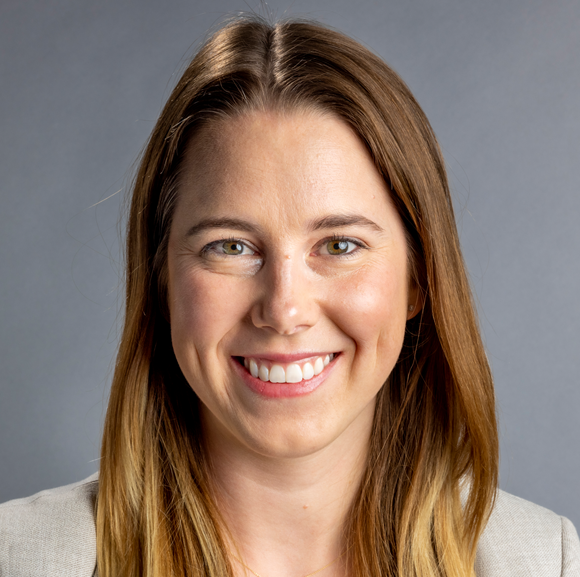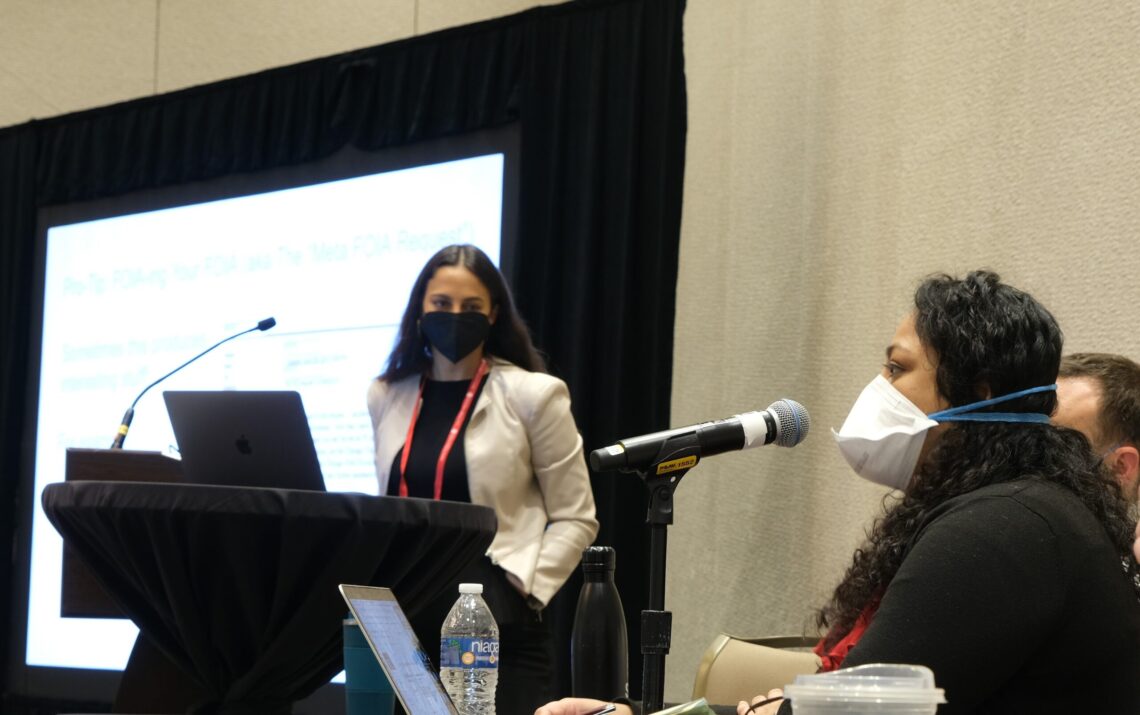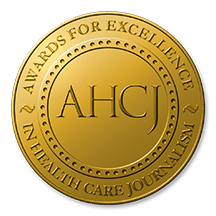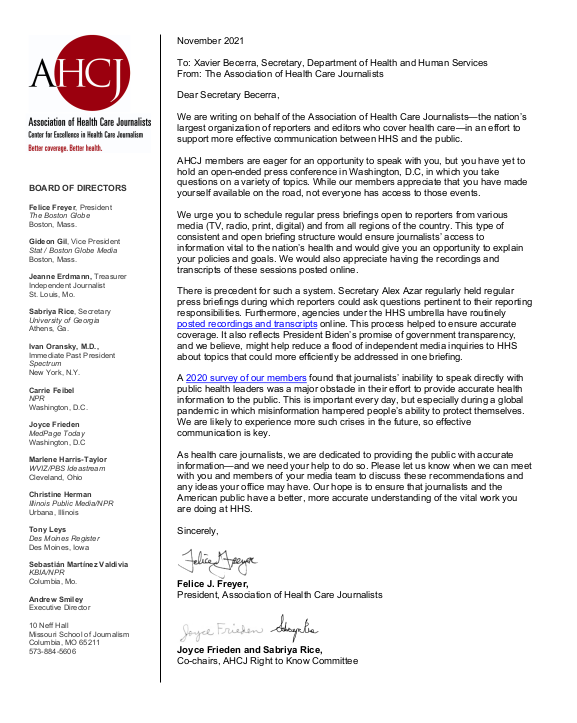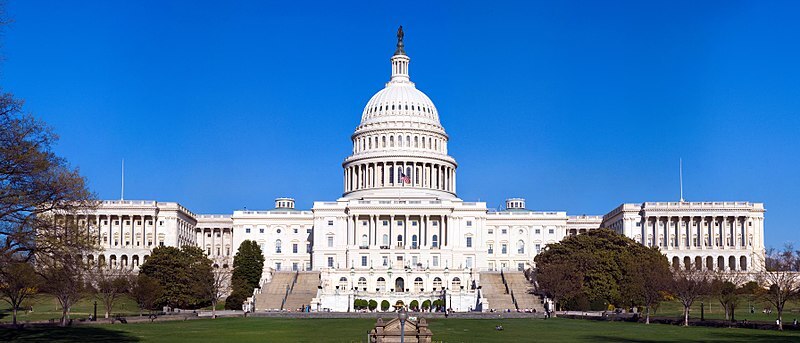Category
Health journalism
-
Meet the 2024 Health Journalism Fellows
This year, more than 95 fellows will receive registration, travel support and lodging to attend HJ24 in New York City…

-
Tips for diversifying your sources
Here are some handy resources to diversify your sources and add credibility, accuracy and context to your work.

-
Fall summit speaker Jessica Beard targets more empathetic, ethical coverage of gun violence
Dr. Jessica Beard answers AHCJ Board President Felice Freyer’s questions during the lunch talk Q&A. (Photo by Erica Tricarico)If reporters…

-
Award-winning journalist explains how to build meaningful connections with sources
Emily Woodruff, a health care reporter for the New Orleans Times-Picayune/New Orleans Advocate, was recognized as one of the winners…

-
Think outside the box when looking for human sources
It can seem hard for journalists to find people open to sharing personal stories about sensitive topics. But they can…

-
Public records: Dig deep (but curb your expectations)
Lexi Churchill of ProPublica (at the podium) and Sandhya Kambhampati of the Los Angeles Times (to the right) talking to…

-
AHCJ announces winners of 2021 health journalism contest
The winners of the 2021 Awards for Excellence in Health Care Journalism were announced Friday by AHCJ. Now in its…
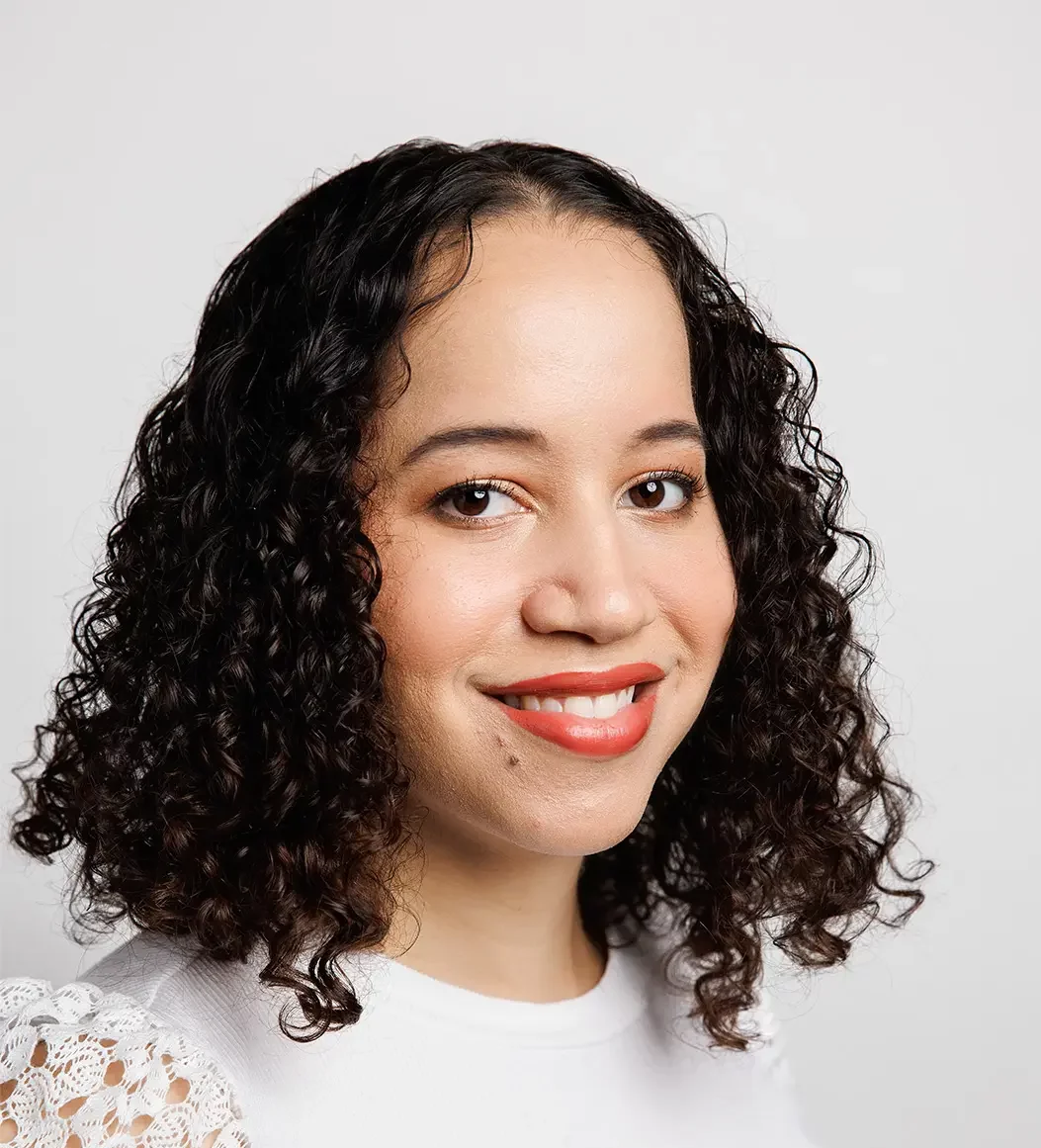
-
One of the most important questions I ask during interviews
When you’ve been a journalist for years, you develop rote patterns for many of your reporting activities — sites you…

-
Becerra needs to open up to the press
AHCJ is calling on Health and Human Services Secretary Xavier Becerra to make himself available for questioning by reporters. In…

-
Tracking the Senate confirmation process for next FDA chief
The Senate’s vetting of a proposed Food and Drug Administration (FDA) commissioner may provide an opportunity for reporters to dig…

